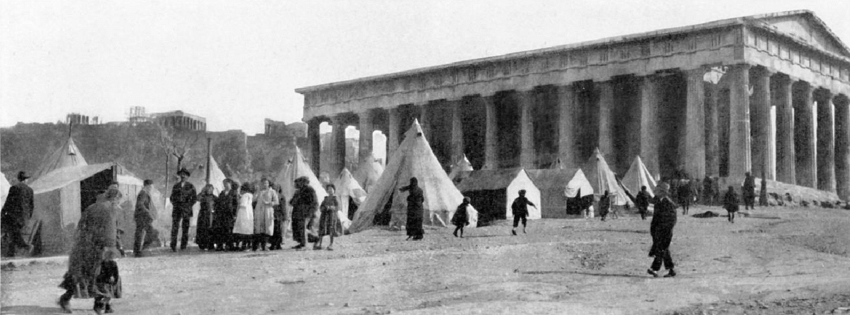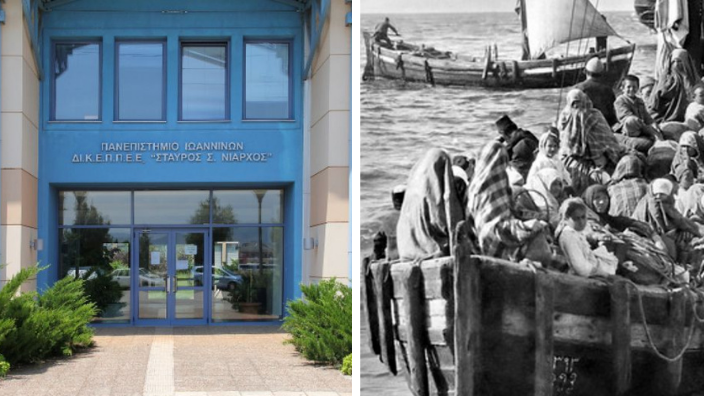A large research project is being performed at the University of Ioannina in hopes to create a digital representation of one of the largest population exchanges of the 20th century that involved approximately 1.6 million people.
The project will research and aim to depict and clarify where the refugees who arrived in Greece following the Asia Minor Campaign and the population exchange travelled from and where they eventually settled.
Dimitra Papadopoulou is a student at the University of Ioannina and has taken an active interest and is also a participant of this research project. She tells Ekathimerini of her motivation to learn more of her ancestor’s story as she descends from refugees on both her mother and father’s side.
“When I was younger, I did not find them very interesting, but I now realize the importance of these stories,” says Ms Papadopoulou.

The 20-year-old student contributes to the research project by gathering information and adding it to existing databases that were created by the University. Details that are added to the database include the names and journeys of over 600,000 urban and agricultural worker refugees.
When the data is collected, it is then sent to be analysed and interpreted by project coordinator Stelios Michalopoulos, a professor at Brown University. Mr Michalopoulos relays that even though the Asia Minor Campaign was taught in schools, there are not enough facts about the refugees’ contribution to the history of Greece.
“It is almost like there is a network with the stories of the refugees but there are no hinges to connect them,” Mr Michalopoulos says. “I hope our research will create the hinges to bring together all these social cells.”
Source: Ekathimerini

